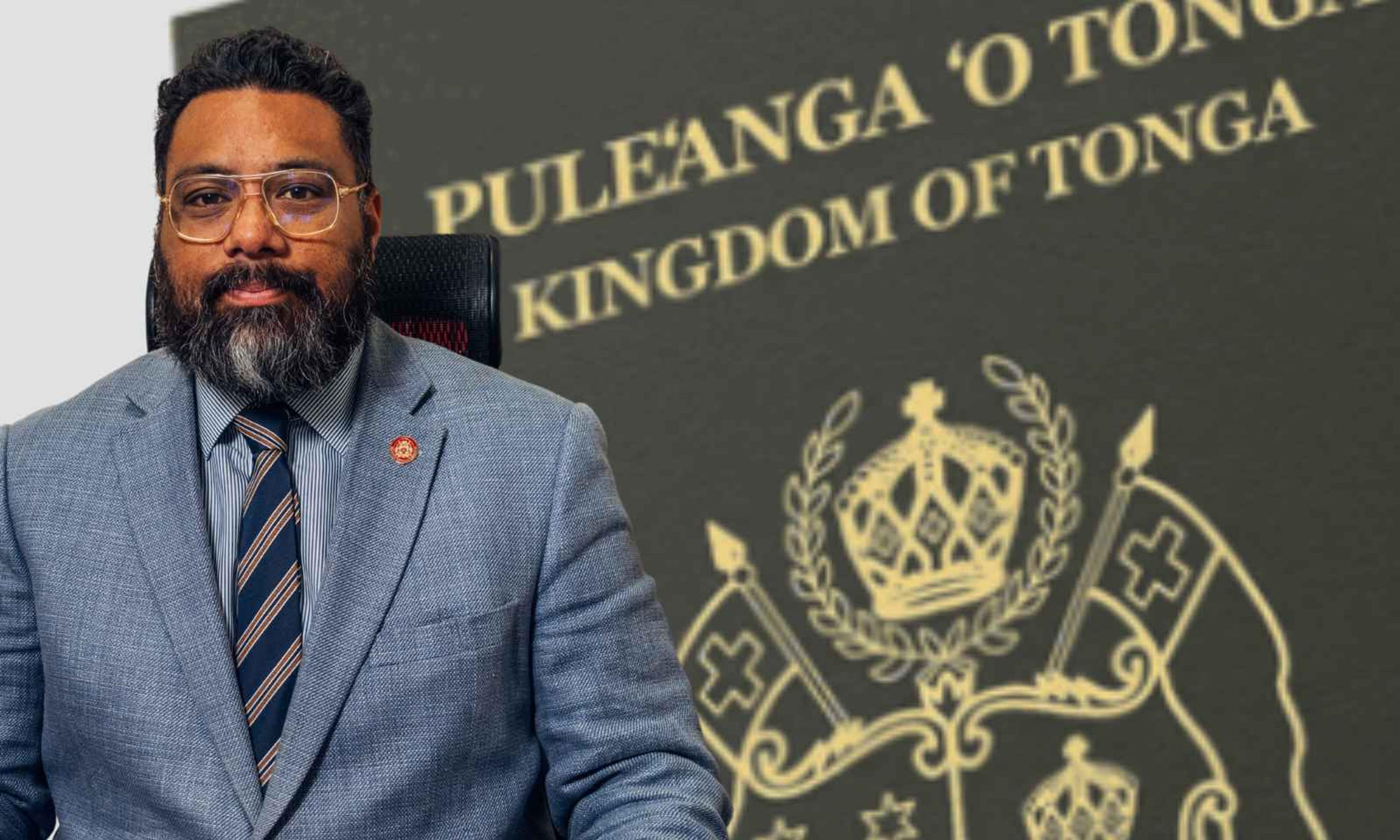

William Terite (left), Jean Uasike-Allen (centre) and Renee Tuifagalele (right). Photo /531pi
Pacific researchers call on ministry to heed report’s findings
Researchers behind a report on how New Zealand Pacific families navigate schooling say more culture is needed in the curriculum, not less.




Fresh warning as Tonga PM defends citizenship investment scheme

‘I knew something was wrong’: Pacific children miss out on early hearing support


Pacific sports wrap: 2025’s massive highs, lows and historic firsts


Fresh warning as Tonga PM defends citizenship investment scheme

‘I knew something was wrong’: Pacific children miss out on early hearing support
The authors behind a new report on how NZ Pacific families navigate education hope the Ministry of Education (MoE) takes their findings on board - to ensure children are better engaged at school.
The Whānau Pasifika navigating schooling in Aotearoa New Zealand report collected Pacific family perspectives to build a guideline for educators in helping children, especially Pacific children, thrive in school.
Two of the report's authors, Renee Tuifagalele and Jean Uasike-Allen, spoke with William Terite on Pacific Mornings about their research.
Tuigafalele said they have been approached by the NZ Post Primary Teachers' Association - Te Wehengarua, to present their findings, and hope that the MoE follows suit in that request.
Uasike-Allen added a challenge to not only Education minister Erica Standford, but anyone involved in the education sector.
"How can we do things in ways that are authentic, or non-tokenistic, [for] our Pacific peoples," Uasike-Allen said.
"How can we embrace that sense of belonging? Because our whānau, they're already doing this work. They want to be involved.
"They're having these conversations with these children, so how can we really harness that in our schools so that our Pasifika children can thrive."
Uasike-Allen's mentioning of belonging refers to one of four Pasifika values they identified in their report, with the other three being whānau, respect and enactment of culture.
The Whānau Pasifika's report, by Tuifagalele, Uasike-Allen, Rāhere Meinders, and Melinda Webber, developed this framework from approximately 360 Pacific family primary learner responses, which came from a larger report - Kia tū rangatira ai ngā iwi Māori: Living, succeeding, and thriving as iwi Māori.
The Kia tū rangatira ai project garnered over 1000 student, whānau and teacher responses from 100 schools across the motu.
One of the key findings that stood out for co-author Renee Tuifagalele was the value of enacting culture and how their research subverted the notion that Pacific culture is separate from education.
"Usually we see these two things as complete opposites," Tuifagalele said.
"For whānau in this study, this is them figuring out what it means to be a part of the diaspora as well as working towards providing for their children to achieve in the schooling system."
Earlier this month the government announced mandatory reading, writing and math tests for primary schools. From next year, schools must test the ability of five year olds in linking sounds and letters at 20 and 40 weeks of schooling.
This sparked a range of concerns for Uasike-Allen, who questioned what knowledge is being tested and consequently privileged.
"What language is being tested? Is it a language that potentially our five year olds have had? Is there an option for that?" she said.
"My question is really around the power circulating in decisions like that, how does that privilege certain groups and potentially disadvantage others?"
She said that the report is not only a map for understanding Pacific learners but understanding their families too, who are already putting in the work to be involved with their children's education journey.
Uasike-Allen shared and extended Tuifagalele's sentiment, saying it's a provocation for discussion in learning about the complexity of Pacific communities.
"We're complex, we come from a range of backgrounds, a range of different communities.
"So, I'd really love to encourage educators to think about what is happening in our communities.
“What are these characteristics and values? How are they enacted by the whānau and their schools? That's also a part of the hope."
Watch the full interview via 531pi’s FB below: